When I first heard someone say “luxury” and “budget” in the same sentence about traveling to Nigeria, I nearly choked on my palm wine. But after three trips to this West African powerhouse, I’ve cracked the code on how to live like royalty without selling your grandmother’s jewelry.
Nigeria isn’t just about surviving the chaos of Lagos traffic or dodging Area Boys. It’s about discovering a country where luxury experiences cost a fraction of what you’d pay in Dubai or London, if you know where to look and how to play the game.
The Sweet Spot: When Budget Meets Brilliance
Here’s what nobody tells you about Nigeria—it’s one of Africa’s best-kept secrets for affordable luxury. While everyone’s scrambling to book overpriced resorts in the Maldives, you could be sipping champagne at a five-star hotel in Abuja for less than the cost of a decent dinner in Manhattan.
The trick isn’t cutting corners; it’s knowing when to splurge strategically and when to embrace the beautiful chaos that makes Nigeria so intoxicating.
Timing Your Trip: The Million-Naira Question
Best Time for Luxury Budget Travel: November to February
Picture this: you’re lounging by a pristine pool at Transcorp Hilton while your friends back home are shoveling snow. Nigeria’s dry season offers perfect weather without the premium prices of peak European summer holidays.
I learned this the hard way during my first visit in July. Between the humidity that made me feel like I was wearing a wet blanket and the rainy season that turned Lagos streets into impromptu canals, I understood why locals call it “the suffering season.”
Pro tip: Book during Nigerian school terms (January-March, May-July, September-November) when domestic tourism dips and international prices follow suit.
Where to Sleep Like Nigerian Royalty
Lagos: The Commercial Capital’s Hidden Gems
Four Points by Sheraton Lagos – Starting from $89/night Don’t let the chain name fool you. This Victoria Island gem offers luxury at a fraction of international Five Points prices. The rooftop pool overlooks Lagos Harbor, and the Nigerian breakfast alone is worth the stay.
Oriental Hotel Lagos – From $120/night This isn’t your grandmother’s hotel. Think contemporary African elegance meets international standards, with staff who actually remember your name (and your preferred cocktail).
Abuja: Political Power Meets Affordable Luxury
Transcorp Hilton Abuja – Starting from $95/night The jewel in Nigeria’s hospitality crown. I’ve stayed in Hiltons across three continents, and this one punches way above its price point. The breakfast buffet alone could fund a small village feast.
BON Hotel Abuja – From $65/night Modern, clean, and surprisingly sophisticated. Perfect for travelers who want luxury basics without the frills that inflate prices elsewhere.
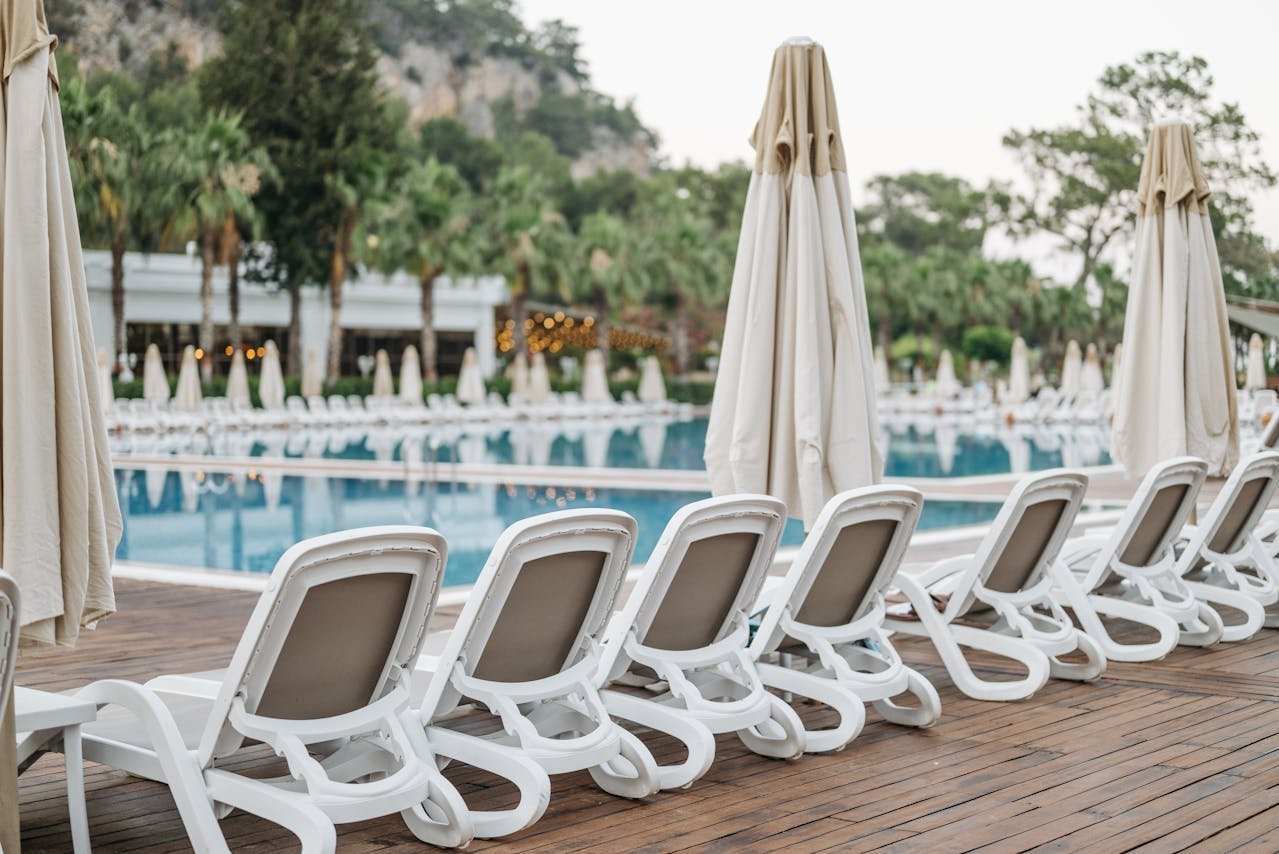
Eating Like a King on a Commoner’s Budget
Fine Dining That Won’t Break the Bank
Nigeria’s restaurant scene is having a moment, and thankfully, it hasn’t caught up with London pricing yet.
Cilantro Restaurant (Lagos) – Average meal: $25-35 Forget everything you think you know about West African cuisine. Chef Collins transforms local ingredients into artistry that rivals anything you’ll find in Cape Town or Marrakech.
Zuma Grill (Abuja) – Average meal: $20-30 The beef suya here is so good, I’ve considered changing my travel plans just to eat it again. Their jollof rice could start diplomatic incidents—in the best possible way.
Street Food Adventures (Because Authentic Luxury Sometimes Comes in a Paper Wrapper)
Don’t you dare leave Nigeria without trying proper street food. Some of my most memorable meals cost less than a London coffee:
- Suya from any decent street vendor: $2-5
- Fresh roasted plantain with groundnut sauce: $1-3
- Authentic pepper soup from local bukkas: $3-8
Transportation: Getting Around Without Going Broke
Flight Hacks That Actually Work
Book Domestic Flights Early: Arik Air and Air Peace offer competitive rates, especially if you book 6-8 weeks ahead. I’ve snagged Lagos-Abuja flights for as low as $45.
International Arrivals: Fly into Lagos (LOS) rather than Abuja. More competition means better prices, plus you’ll experience the full Nigerian welcome immediately.
Ground Transportation Strategy
Uber/Bolt in Major Cities: Safe, reliable, and surprisingly affordable. My longest Lagos ride cost $12—try getting across London for that.
Private Drivers for Day Trips: Negotiate daily rates. I hired a driver in Abuja for an entire day (8 hours) for $40, including his fuel and expertise as an impromptu tour guide.
Luxury Experiences That Cost Peanuts (Literally)
Cultural Immersion on a Budget
Nike Art Gallery (Lagos) – Entry: $5 Four floors of contemporary African art that would cost hundreds to experience in Chelsea or Tribeca. The owner, Nike Davies-Okundaye, occasionally shows visitors around personally—try getting that VIP treatment at the Tate Modern.
National Theatre Lagos – Show tickets: $10-25
World-class performances at community theater prices. I caught a Fela Kuti tribute show that left me emotionally drained in the best possible way.
Natural Wonders Without Tourist Trap Pricing
Yankari National Park – Entry: $8, Game drives: $15 Nigeria’s premier wildlife destination offers elephant spotting and natural hot springs. Compare that to a Kenyan safari costing $200+ per day.
Olumo Rock (Abeokuta) – Entry: $3 Climb ancient granite formations with panoramic views. The spiritual significance is free; the Instagram-worthy photos are priceless.
Shopping: Luxury Goods at Local Prices
Where Smart Shoppers Strike Gold
Lekki Market (Lagos) Negotiate like your flight home depends on it. I bought handwoven Aso-oke fabric that would cost $300 in a SoHo boutique for $45. The key is patience and genuine appreciation for the craftsmanship.
Abuja Craft Market Bronze sculptures, leather goods, and textiles that rival anything you’ll find in Marrakech or Istanbul, at a fraction of the price.
What to Buy (And What to Skip)
Smart Purchases:
- Handwoven textiles and traditional fabrics
- Bronze and wood sculptures
- Leather goods and accessories
- Local spices and seasonings
Tourist Trap Alerts:
- Mass-produced “African” souvenirs
- Overpriced hotel shop merchandise
- Anything claiming to be “ancient” but made last Tuesday
The Art of Strategic Splurging
When to Open Your Wallet Wide
Some experiences justify the extra naira. Book that private cooking class with a local chef ($50 for 4 hours). Spring for the VIP cultural center tour ($30 vs. $10 standard). These moments create stories you’ll tell for decades.
Where to Save Without Sacrificing
Accommodation Location: Stay slightly outside city centers. A 15-minute ride can save you 40% on room rates.
Meal Timing: Lunch specials at high-end restaurants offer the same quality as dinner at half the price.
Budget Breakdown: Your Luxury Nigeria Week
Here’s how I spent 7 days living well without breaking the bank:
| Category | Daily Budget | 7-Day Total |
| Accommodation | $80-120 | $560-840 |
| Meals | $35-50 | $245-350 |
| Transportation | $20-30 | $140-210 |
| Activities/Tours | $25-40 | $175-280 |
| Shopping/Misc | $30-50 | $210-350 |
| TOTAL | $190-290 | $1,330-2,030 |
Compare this to a week in Dubai ($3,000+) or a luxury Caribbean resort ($2,500+), and suddenly Nigeria starts looking like the obvious choice.
Safety and Practical Luxury Tips
Staying Safe While Living Well
Use Registered Accommodations: Stick to hotels with international affiliations or verified local boutique properties.
Transportation Wisdom: Pre-arrange airport transfers through your hotel. That extra $10 beats navigating Lagos taxi negotiations after a 12-hour flight.
Health Precautions: Budget $50-100 for proper travel insurance. Yellow fever vaccination is mandatory, malaria prophylaxis is recommended.
Money Matters
Currency Exchange: Use official exchange bureaus or ATMs. Black market rates might seem tempting, but luxury experiences require legitimate transactions.
Tipping Culture: 10-15% at restaurants, small tips for exceptional service everywhere else. Generosity opens doors money can’t.
Hidden Gems: My Secret Nigeria Discoveries
The Calabar Surprise
If you have extra days, consider Calabar in Cross River State. The city’s colonial architecture, pristine beaches, and the annual Calabar Carnival (December) offer luxury experiences at budget prices. Protea Hotel Calabar provides four-star comfort for around $70/night.
Kaduna’s Underrated Charm
Two hours from Abuja, Kaduna offers traditional crafts, historic sites, and some of Nigeria’s best textiles. The Hamdala Hotel combines modern amenities with local character at incredibly reasonable rates.
Technology: Your Luxury Travel Assistant
Essential Apps for Nigeria
Konga/Jumia: Nigeria’s Amazon equivalents for last-minute shopping Opay/PalmPay: Mobile payment platforms that work everywhere PiggyVest: For currency exchange rate tracking Bolt Food: Food delivery from upscale restaurants to your hotel
Connectivity Solutions
Purchase a local MTN or Airtel SIM card at the airport ($10 with data). Nigerian mobile networks are surprisingly robust, keeping you connected to book experiences and navigate cities.
Luxury Accommodations Deep Dive
Boutique Options Beyond the Chains
The Wheatbaker Hotel (Lagos) – From $150/night Ikoyi’s best-kept secret combines intimate luxury with personalized service. Their Sunday brunch attracts Lagos society—perfect for cultural immersion.
Rockview Hotels (Abuja) – From $85/night
Multiple locations offering consistent quality and Nigerian hospitality that makes international chains feel sterile.
Alternative Luxury: Private Rentals
Consider high-end Airbnb properties in secure compounds. I found a three-bedroom penthouse in Lekki Phase 1 for $120/night that included a private chef option for $30/day—try finding that deal in Miami.
Culinary Adventures: Beyond Jollof Rice
Cooking Classes and Food Tours
Local Cooking Classes: $40-60 for half-day experiences Learn to prepare pepper soup, pounded yam, and egusi stew from local experts. These intimate sessions offer cultural insight money can’t buy elsewhere.
Market Tours with Chefs: $25-35 for 2-3 hours Navigate Lagos or Abuja markets with culinary professionals who teach ingredient selection and cultural context.
Wine and Spirits: Nigerian Discoveries
Nigeria’s emerging wine scene offers surprising quality at remarkable prices. Try palm wine (traditional), Nigerian rum, or local beer like Star and Gulder. A premium bottle rarely exceeds $15.
Day Trip Destinations: Luxury Excursions on a Dime
From Lagos
Badagry Slave Route Tour: $30 including transportation Historical significance meets educational luxury. Professional guides provide context unavailable in history books.
Lekki Conservation Centre: $8 entry, $15 guided tours Canopy walkways and pristine nature, 30 minutes from Lagos chaos.
From Abuja
Zuma Rock Expedition: $20 including transport Nigeria’s iconic monolith offers hiking, photography, and spiritual reflection.
Suleja Pottery Village: $15 for workshops Learn traditional pottery techniques from master craftsmen.
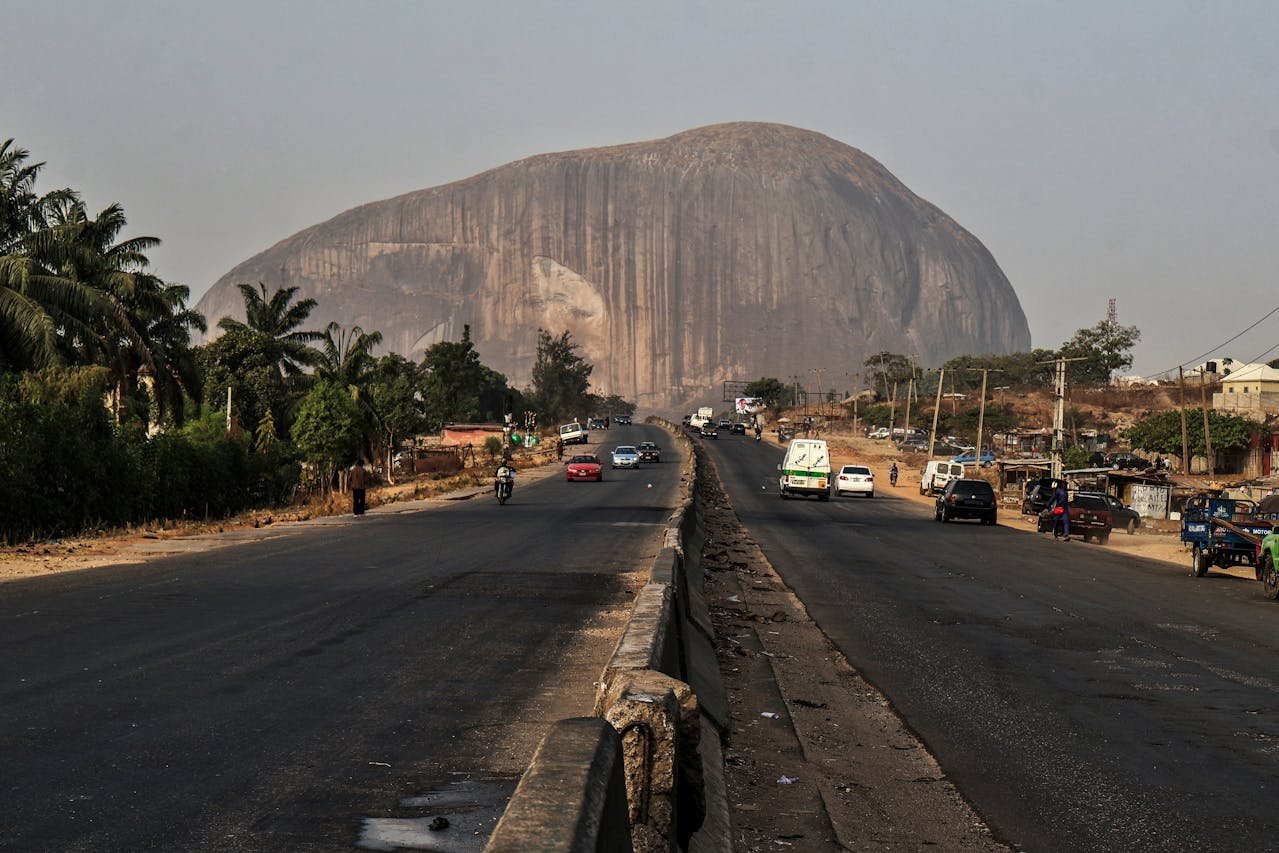
Shopping Strategy: Luxury Goods at Local Prices
Textile Paradise
Nigeria produces some of Africa’s finest fabrics. Aso-oke (handwoven cloth), Adire (tie-dye), and contemporary prints offer luxury quality at production prices.
Best Shopping Locations:
- Oshodi Market (Lagos): Wholesale prices, bulk options
- Wuse Market (Abuja): Quality selection, reasonable prices
- Computer Village (Lagos): Electronics at competitive rates
Negotiation Masterclass
Start at 30% of the asking price. Show genuine interest in craftsmanship. Walk away if needed—sellers will often chase you with better offers. Respect the process; it’s cultural theater, not adversarial combat.
Transportation Mastery: Moving Like a Local VIP
Airport Arrival Strategy
Pre-book transfers through your hotel ($25-40) or use official taxi services ($20-30). Avoid accommodation touts—they’re commission-driven, not service-focused.
City Navigation
Lagos: Stick to islands (Victoria, Ikoyi, Lekki) for safer, more predictable travel times Abuja: More manageable traffic, but plan extra time during government working hours Regional Travel: Domestic flights beat road travel for time and safety
Private Driver Economics
Daily rates: $40-60 including fuel Benefits: Local knowledge, language assistance, cultural interpretation, safety Book through hotels or verified tour operators, never street negotiations.
Seasonal Luxury: Timing Your Nigerian Adventure
Dry Season (November-March): Premium Period
Perfect weather, cultural festivals, optimal outdoor activities. Prices peak during Christmas/New Year but remain affordable compared to international standards.
Shoulder Season (April, October): Sweet Spot
Reduced accommodation rates, fewer crowds, acceptable weather. My personal favorite for maximum value.
Rainy Season (May-September): Budget Champion
Lowest prices, lush landscapes, fewer tourists. Requires flexibility and patience, rewards adventurous travelers.
Conclusion: Nigeria’s Luxury Secret
After multiple trips, I’ve realized Nigeria offers something rare in modern travel: authentic luxury experiences at accessible prices. You’re not paying for manufactured exclusivity or Instagram-worthy fakeness. You’re experiencing genuine hospitality, rich culture, and memorable adventures that cost less than a weekend in most Western cities.
The secret isn’t about finding cheap alternatives to luxury—it’s about discovering that luxury in Nigeria operates on different economics. Quality, service, and memorable experiences don’t require Western pricing when you understand local context and cultural nuances.
Whether you’re sipping champagne at Transcorp Hilton, learning traditional weaving techniques, or watching the sunset from Olumo Rock, Nigeria proves that luxury travel doesn’t require unlimited budgets—just intelligent planning and cultural curiosity.
Your friends might question your destination choice initially, but they’ll be booking their own Nigerian adventures after seeing your photos and hearing your stories. Sometimes the best travel secrets hide in plain sight, waiting for adventurous souls willing to look beyond conventional wisdom.
Frequently Asked Questions
Q: Is Nigeria safe for luxury travel?
A: Yes, with proper precautions. Stay in reputable accommodations, use verified transportation, and follow local advice. Major cities have well-developed tourist infrastructure.
Q: What’s the average daily budget for luxury travel in Nigeria?
A: $190-290 per day covers luxury accommodations, quality meals, safe transportation, and cultural activities—significantly less than comparable experiences in Dubai or Europe.
Q: Do I need special vaccinations for Nigeria?
A: Yellow fever vaccination is mandatory. Malaria prophylaxis is recommended. Consult your doctor 4-6 weeks before travel.
Q: What’s the best currency to bring to Nigeria?
A: US Dollars or Euros exchange well. Use official exchange bureaus or ATMs for best rates and safety.
Q: How reliable is internet connectivity in Nigerian luxury hotels?
A: Major hotels offer reliable WiFi. Purchase local SIM cards for mobile data backup.
Q: Can I use international credit cards in Nigeria?
A: Major hotels and upscale restaurants accept international cards. Carry cash for markets and smaller establishments.
Q: What should I pack for a luxury Nigeria trip?
A: Lightweight, breathable clothing, comfortable walking shoes, sun protection, and dressy outfits for upscale dining. Power adapters for British-style plugs.
Q: How far in advance should I book accommodations?
A: 4-6 weeks for best rates and availability, especially during dry season (November-March).
Q: Are there direct flights to Nigeria from major international cities?
A: Yes, direct flights available from London, Dubai, New York, and other major hubs to Lagos and Abuja.
Q: What cultural etiquette should luxury travelers observe?
A: Dress modestly outside hotels, respect religious customs, learn basic greetings in local languages, and tip service staff appropriately (10-15%).
Top Products and Travel Recommendations
Accommodations
- Transcorp Hilton Abuja – Official Website – Nigeria’s flagship luxury hotel with world-class amenities and service standards.
- Four Points by Sheraton Lagos – Marriott Booking – Contemporary luxury in Victoria Island with harbor views and premium dining.
- Oriental Hotel Lagos – Official Website – Boutique luxury combining African elegance with international standards.
- The Wheatbaker Hotel – Official Website – Intimate luxury in Ikoyi with personalized service and cultural immersion opportunities.
- BON Hotel Abuja – Official Website – Modern comfort and sophistication at excellent value pricing.
Dining Experiences
- Cilantro Restaurant Lagos – Fine dining establishment showcasing contemporary Nigerian cuisine with international flair.
- Zuma Grill Abuja – Premium dining experience featuring exceptional Nigerian barbecue and traditional dishes.
Transportation Services
- Uber Nigeria – Download App – Reliable ride-hailing service available in major cities for safe transportation.
- Bolt Nigeria – Download App – Alternative ride-hailing platform with competitive pricing and good coverage.
Cultural Attractions
- Nike Art Gallery Lagos – Four-story contemporary African art gallery showcasing local and international artists.
- Yankari National Park – Nigeria Tourism – Premier wildlife destination with elephant viewing and natural hot springs.
- National Theatre Lagos – Cultural venue hosting world-class performances at affordable prices.
Natural Attractions
- Olumo Rock Abeokuta – Ancient granite formation offering panoramic views and cultural significance.
- Lekki Conservation Centre – Nature reserve with canopy walkways and pristine wildlife viewing opportunities.
Shopping Destinations
- Lekki Market Lagos – Traditional marketplace offering handwoven fabrics, crafts, and cultural artifacts.
- Abuja Craft Market – Artisan marketplace featuring bronze sculptures, leather goods, and traditional textiles.
Technology and Apps
- MTN Nigeria – Official Website – Major mobile network provider offering reliable connectivity and data packages.
- Jumia Nigeria – Official Website – E-commerce platform for shopping and local product delivery.
- PiggyVest – Download App – Financial app useful for currency tracking and local payment solutions.
- PalmPay – Download App – Mobile payment platform widely accepted across Nigeria for convenient transactions.
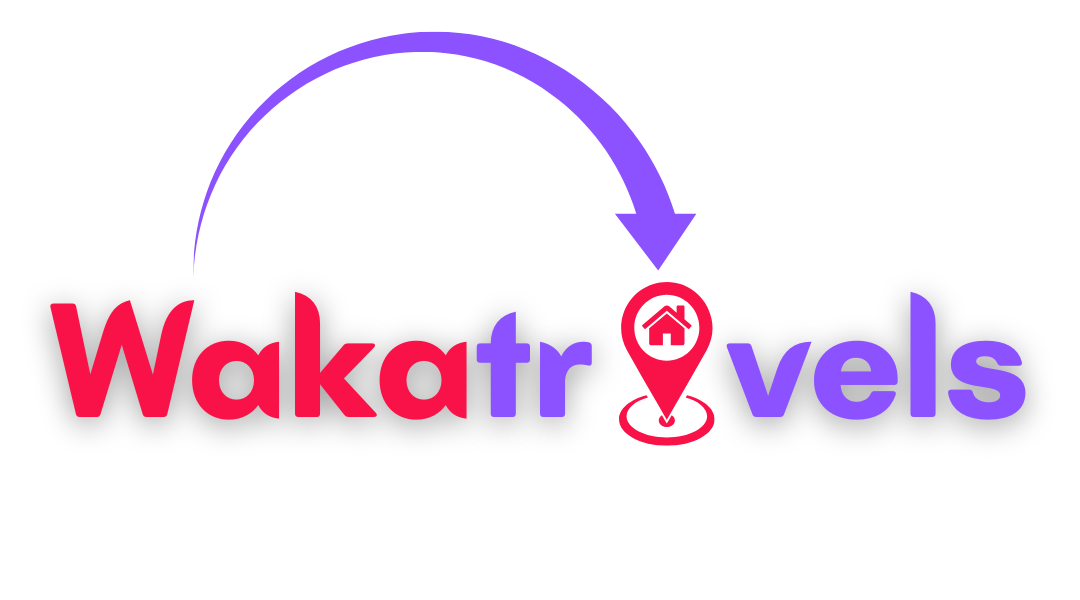
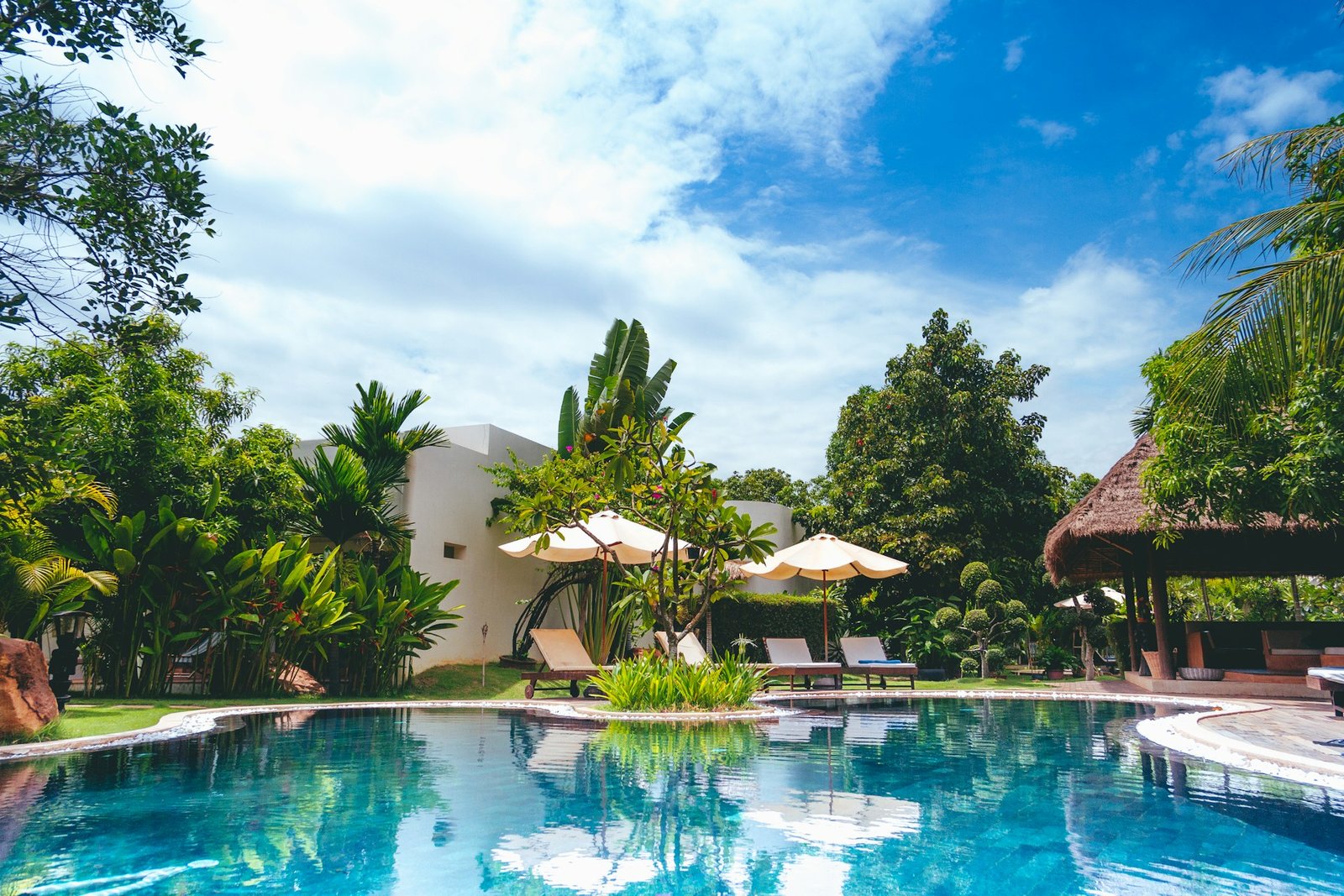
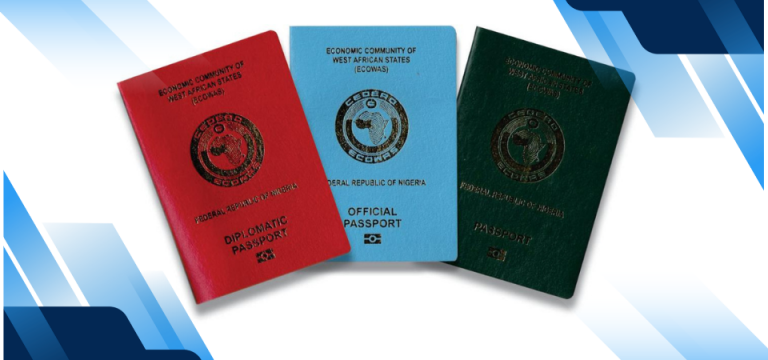
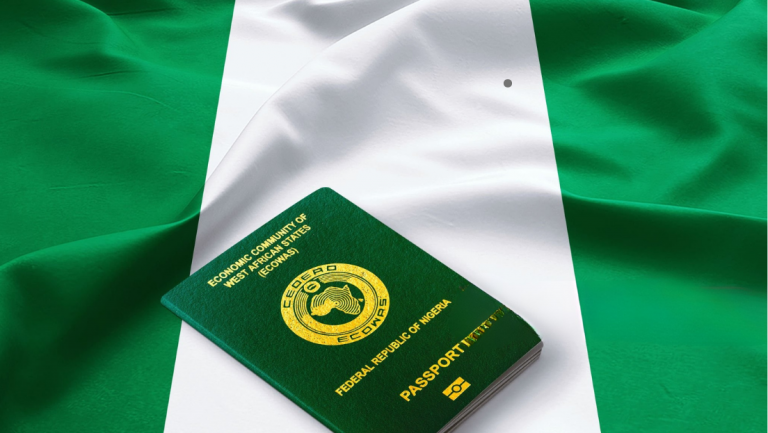
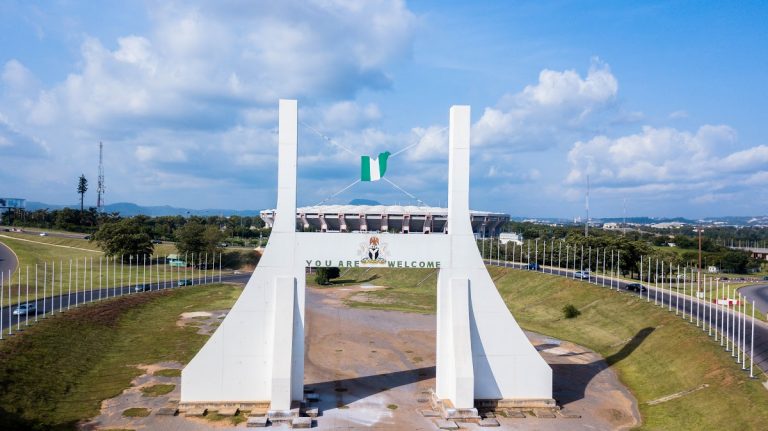
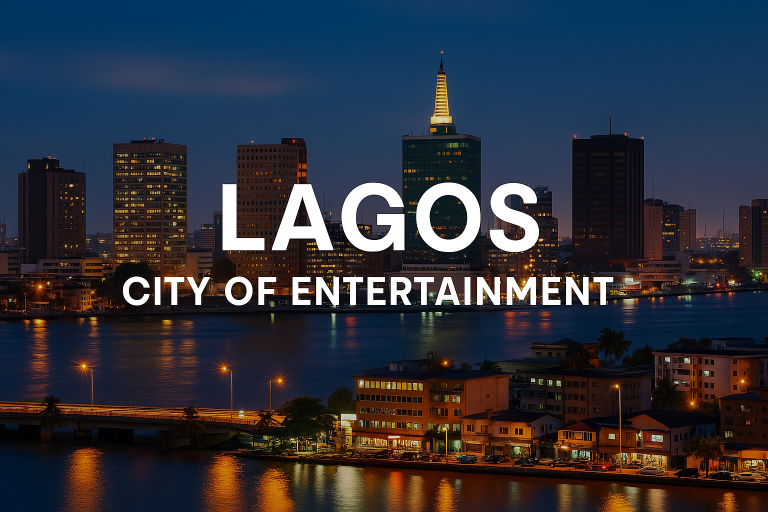
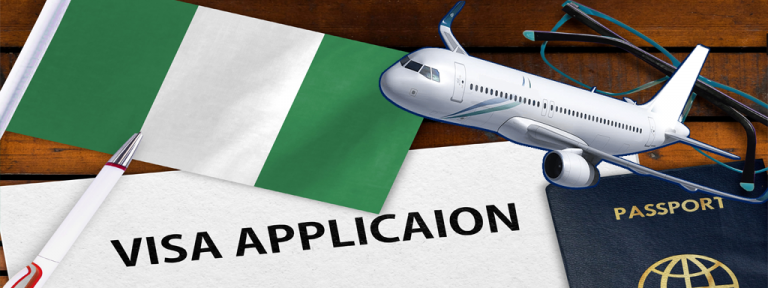
I don’t think the title of your article matches the content lol. Just kidding, mainly because I had some doubts after reading the article.